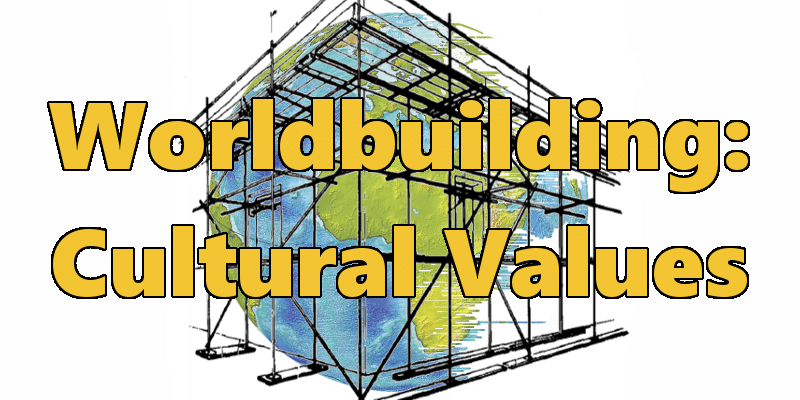
What separates one culture from another. It’s more than clothes and language, though those are important for making them look and feel distinct from one another. No, what makes two cultures unique are cultural values. These are the traits that, as a society, are held in highest regard. When speaking with pride about their country, their history, or their national heroes, these are the common threads that will pop up. How can you use this phenomenon to make a fictional culture?
Pick three traits
So you want to create a culture? Start by identifying the three traits they value in a person. A culture based on trade might value shrewdness, frugality, and trustworthiness. Or they could place higher value on gregariousness, hard work, and reliability. A people whose history has been defined by frequent wars might bravery, strength, and conformity. Ancient Sparta placed immense value on stoicism, discipline, and duty, whereas the viking culture prized ferocity, physical prowess, and daring. But both would be considered “warrior cultures.” That bland label doesn’t begin to account for the stark differences in the two cultures, but cultural values make the distinction much easier to understand.
Of course, you can easily go beyond just three. If a particular culture is going to be deeply explored in your fiction, it would be wise to do so. But for a lesser focus in your story, this simple cultural characterization may well be sufficient for your needs.
Prioritize values
A priority of values underlies all cultural judgments. “Culture X are a bunch of barbarians.” “Culture Y? Those effete money-grubbers?” “I wouldn’t trust Culture Z with my horse’s reins, let alone my bank ledgers.”
A hero in one culture (A) may be a hero to the people in the next kingdom over (B). But on the far side, his other neighbors (C) consider him a despicable villain. The hero in question? He killed his king to spare the prince an unjust execution. The people of A value honor above loyalty, and thus the knight was in the right to do what he had to in order to save the prince from his unjust fate. The people of B, looking on from the next kingdom over, value boldness and honor most highly, and nod their heads in approval that the knight chose to slay a dishonorable ruler rather than carry out such an order. The people who live in C are aghast, as loyalty and humility are paramount to them. Even though they place value on honor, they don’t see it as the knight’s place to value his own judgment over his king’s, even if he personally disagrees.
Outliers, personal values, and conflict
Of course, fiction would be boring if cultures were monolithic. While these broad-brush approaches may work over the span of a county, or even a neighborhood, individuals will always carry their own personal values around. Most of the time, they will fall in line with the local culture, but fiction thrives on the outcast, the non-conformist, and the rebel. Consider a culture that values honesty above loyalty, and the boy who decides to help his friend steal to feed his family. While the starving thief can be understood, if not condoned, the helper (who was in no danger himself), is vilified for his crime.
This same thinking can be applied to a conscientious objector in a warlike culture (coward!) or a rationalist in a theocracy (heathen!). An individual holding different values can always add conflict to a story.

I’ve finally had a chance to read this post. I can’t thank you enough. I was getting frustrated with my different cultures because I couldn’t fully figure out how to differentiate between them. This post has opened my eyes. I now have many possibilities to explore. Thanks!